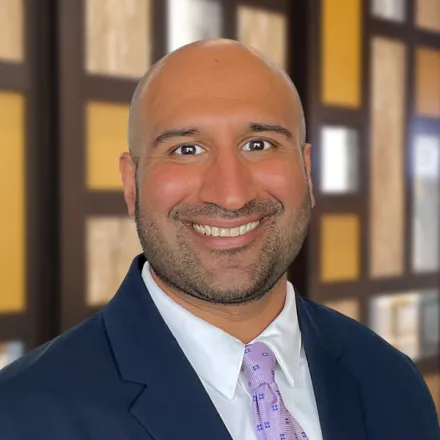

No one wants to leave their loved ones with a slew of burdens after their death. Yet at the same time, many Canadians have inaccurate or incomplete estate plans that will be a hassle to put into action. That’s the exact opposite of effective estate planning.
The best plans evolve over time as your family’s needs change, so they’re ready to be acted on when the time comes. Below are five common mistakes people often make in this emotionally charged part of their lives, plus some simple estate-planning strategies you can put into use as you create, review or update your estate plan.
Estate-planning mistake #1: Not having a will (or a recently updated one)
Having a will is the obvious place to start, as it’s the backbone of any estate plan, detailing how you want your assets handed out and naming an executor (more on this critical person’s role below) and a guardian for any young children in your care.
Yet, despite the will’s importance, a shocking number of Canadians don’t have one: according to a 2018 Angus Reid poll, 51% of Canadians have no will, and 35% of respondents said theirs was out of date.
If you leave no will, one of your heirs will have to apply to the BC government for a Grant Of Administration, which would allow them to take the executor’s role. The opportunity for conflict to arise here is obvious. Plus the government’s own website admits that this process involves “a lot of paperwork,” so it’s a problem you don’t want to leave your family with – especially when a will is easy to create. You can use an off-the-shelf kit to do this, but you’re best to work with a lawyer or notary public to ensure your will is recognized under BC law and can be acted on.
Not having a will is especially problematic if you have many assets. The last thing you want, for example, is your children in conflict over who gets the home, the family cottage, or other financial or business assets. It also becomes more complicated and heart-wrenching if you have young children. You will should set out guardianship matters, including how your estate proceeds should be spent for the benefit of surviving children.
Estate-planning mistake #2: Ignoring taxes (especially with registered accounts)
A good estate plan will use the many tax-reduction strategies available to maximize the money and other assets passed on to inheritors while minimizing the tax your estate must pay.
One area where this is often overlooked (and requires especially early planning) is with registered retirement savings plans (RRSPs) or any RRSPs you’ve converted into registered retirement income funds (RRIFs). You may be aware that these funds can be “rolled over” into a spouse’s RRSP or RRIF tax-free until December 31 of the year following your death (to make sure this happens in an orderly way, you’ll want to ensure your spouse is named as your plan’s beneficiary).
Bear in mind, though, that this is where the tax shelter ends: once the funds pass from the last living spouse to any other beneficiary over 18, the full amount will be added to that spouse’s income on their final tax return. The likely result is that the RRSP or RRIF funds will be taxed at the highest marginal tax rate in BC – currently about 53.5%.
If you don’t have a designated spouse, you’ll want to speak to an advisor as soon as possible. There may be some strategies you can use – such as making larger RRIF withdrawals earlier in retirement – that would allow you to withdraw at a lower tax rate than your estate would pay on any RRSP or RRIF funds after your death. You could then reinvest the after-tax funds in a non-registered account.
Another issue to consider, depending on your family dynamic, is leaving your RRSP or RRIF funds to a non-spouse who would then receive the full amount, leaving the tax bill payable by the estate. This can create problems related to equal distribution, fairness and other matters within the family, as the tax bill is often not accounted for. This can be solved for with life insurance, as discussed below. Your advisor can also aid with strategies and solutions.
Capital Gains Taxes and Your Final Wishes
Upon death, any assets you pass along to loved ones are deemed to have been disposed of at the fair market value (FMV) of the asset – such as a home, cottage or other financially valued assets. Depending on the value and the structure of your plan, this may trigger a capital gains tax that would be payable by your estate or heirs.
Recently, the federal government made changes to the structuring of capital gains taxes. Annual capital gains up to $250,000 are taxed at 50% of the value, however, what’s new from June 2024 is that for any capital gains over $250,000, the rate increases to 66.67%. It is wise to discuss this matter with a tax or accounting specialist so that you are not passing a huge tax bill on to your loved ones.
Estate-planning mistake #3: Not making effective use of life insurance
If you expect your estate to generate a large tax bill, consider using life insurance to cover it. Upon your death, your policy would pay out a one-time tax-free benefit to a designated beneficiary that they could use to pay the taxes. Life insurance is also a great way to leave funds to someone in a way that can’t be contested, as life insurance payouts bypass your estate. Again, these are strategies best put in place with the help of your advisor.
Estate-planning mistake #4: Not understanding the role of the executor
Most people underestimate the size of the executor’s role. In BC, the executor must apply for probate (or file the paperwork to activate the will), produce an inventory of assets, file taxes for the deceased, collect debts, sell assets and disburse assets to the inheritors.
According to 2018 statistics from EstateExec, a maker of software for executors, the average Canadian executor spends 570 hours settling an estate, or about 70 full-time workdays. That’s obviously a huge commitment, which is why you’ll want to ensure your chosen executor is comfortable taking it on.
Finally, if you have a complex estate, or if you’re worried about family conflict, consider hiring a professional, like a lawyer or a financial advisor, or investigate how setting up a trust company can help do the job. Most people overlook this option because they feel it’s too expensive, but in BC, an executor can charge a maximum of 5% of the estate’s value whether they’re your sister or your lawyer.

Estate-planning mistake #5: Misunderstanding power of attorney
Many people think that granting someone power of attorney means they have absolute control of all aspects of your life – including health-care decisions – should you become incapable of managing these yourself. But that’s not true: if you grant someone power of attorney in BC, they’re only able to act on your behalf when it comes to financial matters. An important note to remember: a power of attorney ends when the donor dies – a key difference between the role of a POA and an executor.
What’s more, you can limit the scope of your power of attorney however you see fit. Furthermore, a power of attorney can also spring in to force upon a triggering event, meaning you won't have to be afraid of giving up full control until it is absolutely needed. So you could empower your representative to, say, pay your bills if you become incapable of doing so but not make investment decisions. (The technical name for the type of power of attorney that comes into effect if you’re mentally incapable of deciding for yourself is called an enduring power of attorney.)
To name someone to make health-related decisions on your behalf when you’re unable to, you need to create an Advance Care Plan that names a representative to whom you wish to grant this power.
The need to have clear instructions here is obvious: if you leave no power of attorney, you will put your family members in a position where they have to appeal to the courts to gain this power. Or if you fail to update your plans, you could leave yourself in a position where the person to whom you’ve granted power of attorney has moved away, for example, or passed away.
Seeking further advice for effective estate planning
When it comes to estate planning, you not only need good advice to build your plan – you need a team of experts to make sure it’s carried out. Your financial advisor can act as the starting point to working with you on your plan and working in tandem with other professionals you’ve hired – such as an accountant or a lawyer – to make sure your wishes are carried out the way you want them to be. Make an appointment with your advisor today.

Have a question? Ask an expert
JT Rai Financial AdvisorMutual Funds Investment Specialist
Our team of experienced professionals are here to answer any questions you may have.